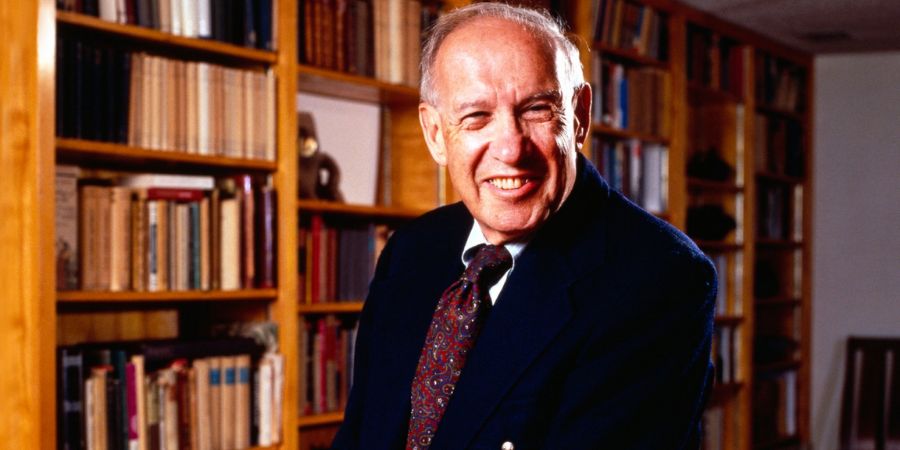Leadership has been theorized, discussed, and articulated for decades, but few thinkers have influenced its underlying principles as deeply as Peter Drucker quotes. Dubbed “the father of modern management,” Drucker spent over six decades studying how actual people, organizations, and ideas contribute to and shape progress. He wasn’t engaged in speculation sitting in an armchair; rather, he was working closely with actual businesses, nonprofit organizations, and governments, in the world of actual, not theoretical, leadership.
The Drucker Institute states that Peter Drucker leadership principles persists to influence leaders in every field, from technology to education to public policy. Drucker’s brilliance was truly his clarity; he made management a discipline of humans as opposed to a discipline of machines, reflecting his Peter Drucker management philosophy.
Early Life and Education
Peter Ferdinand Drucker was born in Vienna on November 19, 1909, at a time when the city was a thriving hub of intellectual and artistic interaction. His home was frequented by discussions with some of the greatest thinkers of that time, including economists such as Joseph Schumpeter and psychoanalysts who were part of Sigmund Freud’s circle. These interactions helped form his own interest in how people think, how they work, and how they organize society. Little known Peter Drucker quotes suggest that his upbringing instilled a belief in observing human behavior as a guide to action.
He attended the Döbling Gymnasium in Vienna and later continued studies in Germany, where he obtained a doctorate in international and public law from the University of Frankfurt in 1931. During his time as a student, he developed interests in philosophy and political theory, particularly the work of Kierkegaard, a theme related to responsibility and ethics that subsequently influenced Peter Drucker management philosophy.
Upon completion of his degree, he began his professional life as a journalist and economist in Frankfurt, writing for newspapers and reporting on economic trends in Europe. The political situation in Germany, however, was becoming more perilous. In 1933, after the Nazi regime prohibited one of his essays, Drucker departed to London. There, he served as an economist and consultant for a number of banks and companies in Britain until he emigrated to the United States in 1937.
In America, Drucker’s professional career was launched. He became a faculty member at Bennington College and subsequently at New York University, where he was one of the first scholars to teach management as a field of study. His first significant study, The End of Economic Man (1939) developed his reputation for understanding society and institutions in depth. However, it was with his 1946 book, Concept of the Corporation, based on a comprehensive study of General Motors, that he became the preeminent management theorist.
In the following sixty years, Drucker increasingly became a presence in business, government, and nonprofits, serving as a consultant for large companies, public institutions, and even churches, and always interested in the human side of management. His entire career was a dialogue between reflection and practice. When he died in 2005, Drucker had molded the field of management while also redefining leadership as an intellectual and moral obligation, showing how Peter Drucker redefined leadership in practical ways.
Here are 10 lesser-known yet transformative insights from Peter Drucker that continue to redefine how leadership works.
- “Leadership is doing the right things; management is doing things right.”
- “There is nothing so useless as doing efficiently that which should not be done at all.”
- “The most serious mistakes are not being made as a result of wrong answers. The true dangerous thing is asking the wrong question.”
- “Results are gained by exploiting opportunities, not by solving problems.”
- “Follow effective action with quiet reflection. From the quiet reflection will come even more effective action.”
- “The best way to predict the future is to create it.”
- “The purpose of business is to create a customer.”
- “Management is doing things right; leadership is doing the right things.”
- “The most important thing in communication is hearing what isn’t said.”
- “If you want something new, you have to stop doing something old.”
Conclusion
Peter Drucker quotes remind us that leadership is an obligation to purpose and service. His thinking continues to shape how organizations develop decades later. He taught that management is never solely about profit or productivity. Management is about people’s decisions and the ethical obligation to make a meaningful contribution to society. Every principle he proposed, from creating customers to knowledge work, emerged from observing how real institutions behave and how real people make decisions.
His influence is larger than the business world. Governments, hospitals, universities, and others are trying to shape more humane and effective systems based on his work. What made Drucker unusual was his ability to pair insight with practicality, providing clarity where others have provided complexity.
Drucker’s works provide a compass to navigate uncertain times. They remind leaders that results come from self-discipline, curiosity, and integrity. He felt leadership is more character than charisma. The greatest example to his life is that his words still compel action with wisdom, humility, and courage. These transformative Peter Drucker leadership insights endure because they address what it truly means to lead, Peter Drucker quotes that transform leadership remain as relevant today as ever.



